By Martine Thompson, The Cut
There is something nourishing about seeing your realities reflected back onscreen. Multidimensional stories that don’t force you to settle for bits and pieces of yourself in characters who don’t experience the world like you do. Films that carefully and tenderly explore the interior lives of Black women and girls — our happiness and sadness, our friendships and romances, our varied relationships to our mental health and our bodies, our undoings and rebirths and all the messiness that comes with being human in a deeply imperfect world. While these kinds of stories have long been told, they’re rare and often underappreciated in mainstream Hollywood because, well, Hollywood.
Fortunately, there are resources that make finding dynamic stories much easier: Black Women Directors, an ever-growing digital library founded by Danielle A. Scruggs, spotlights Black women and nonbinary filmmakers across the diaspora. Maya Cade’s Black Film Archive is a growing register of Black films from 1915-1979. Transgender Media Portal features Black filmmakers, as well as other artists of color, with stories that center trans and queer people in front and behind the camera. And film festivals like Black Femme Supremacy, founded by Nia Hampton, are great for finding new stories and connecting with other film lovers.
While this curated watch list doesn’t scratch the surface of what’s out there, these 20 films centering Black girls and women are a great starting point of stories for us and by us.
Jinn (2018)
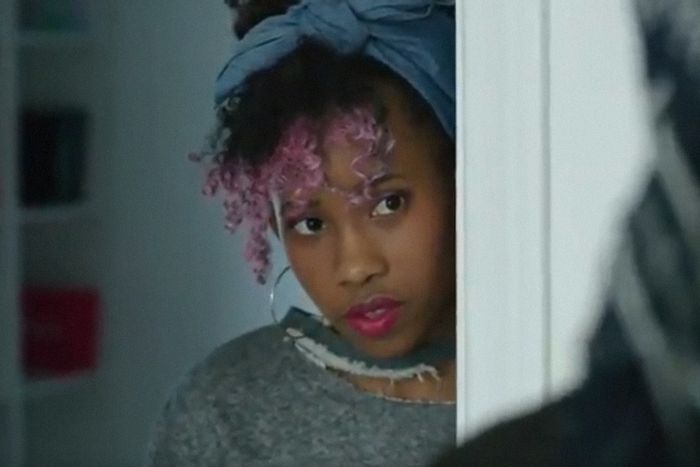
Guided by filmmaker-writer Nijla Mu’min, this tender coming-of-age story set in the Crenshaw community of Los Angeles follows 17-year-old Summer (Zoë Renee) as she experiences first love, a deepening relationship with Islam, and the ups and downs of a mother and daughter’s clashing self-discovery.
I Like It Like That (1994)
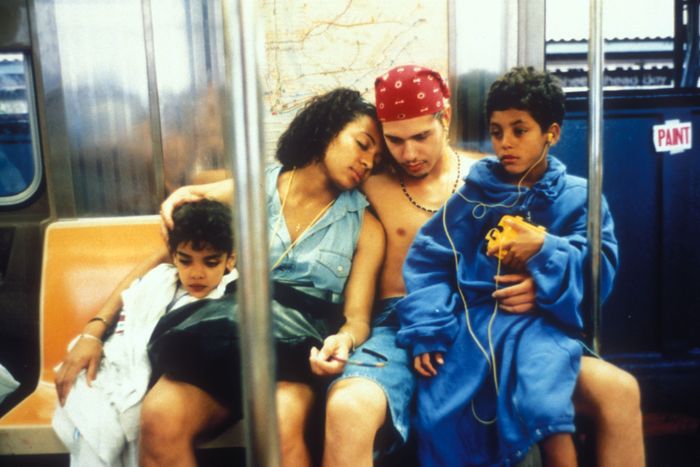
Director Darnell Martin and lead Lauren Vélez are a union that continue to shine on screen almost 28 years later. If you’ve got a soft spot for seeing New York City on film — the stoop hangouts, confrontations in the bodega, ruminations on the train — then this tale of a fly working mom struggling and persevering in the Bronx will feel like a hug.
The Watermelon Woman (1996)
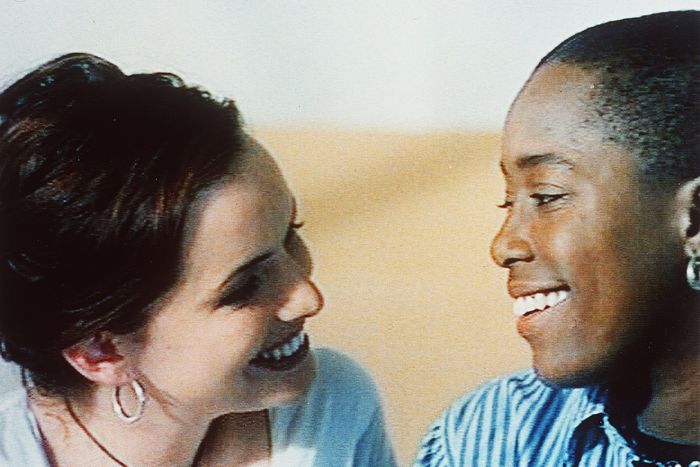
Filmmaker Cheryl Dunye wrote and starred in this seminal mockumentary that’s now a must-watch part of the queer-cinema canon. The story centers a filmmaker and video store clerk, who is also a Black lesbian in ’90s Philadelphia, as she searches for information about a mystery queer Black woman from a silent film. Expect a delightful dose of nostalgia — hello, video-store connections!
Abundance (2021)
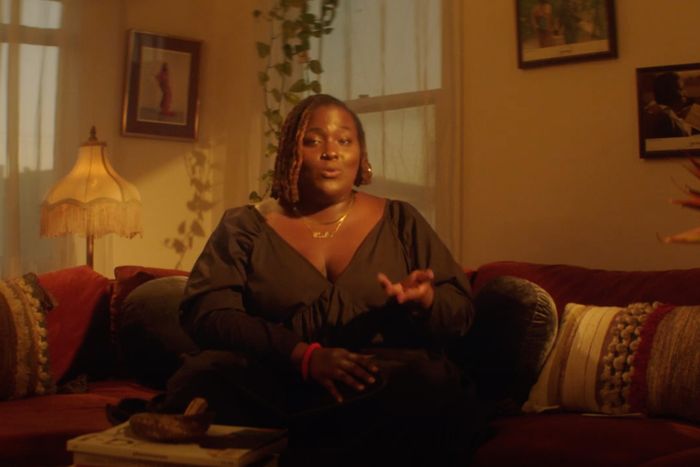
Amber J. Phillips is a filmmaker and art director whose hilarious sharp cultural commentary “imagines a world where Black womanhood is an abundant overwhelming experience of safety, pleasure, and joy.” Her latest project, which she wrote, produced, and stars in, is a 31-minute meditation on identity divided into three parts — fat, angry, queer. Abundance is directed by Kym Allen, with cinematography by Sade Ndya.
Baldwin Beauty (2020)
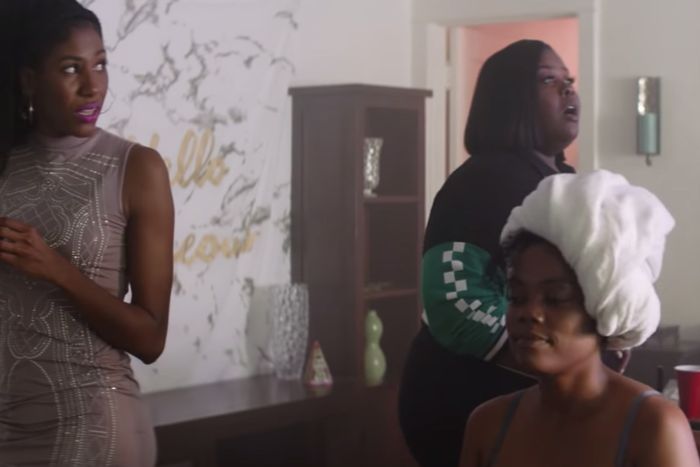
This 11-minute gem of a short film follows Farrah (Raven Goodwin), a new-to-Los-Angeles hairstylist who makes a house call and meets a lively group of friends pregaming before an outing. The film was written and directed by Thembi Banks and was a 2019 Sundance selection.
Jezebel (2019)
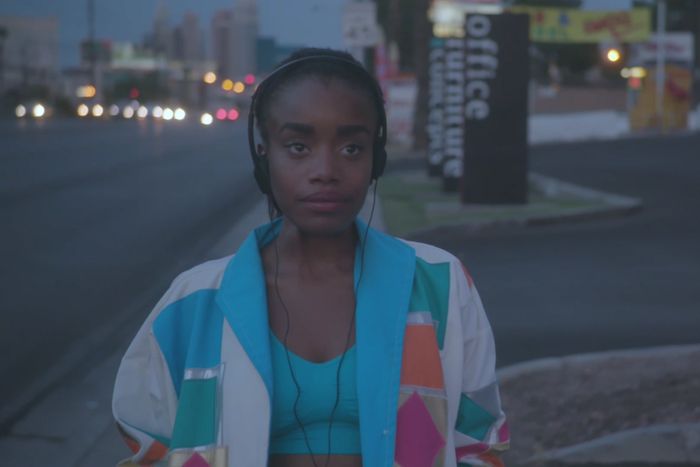
A young woman (Tiffany Tenille) enters the realm of cam modeling with encouragement from her big sister, who works as a phone-sex operator. The film is inspired by the lived experience of writer-director-co-star Numa Perrier (hay, Black & Sexy fans!), and explores stepping into one’s womanhood and the realities of survival for two sisters as they simultaneously process grief.
Miss Juneteenth (2020)
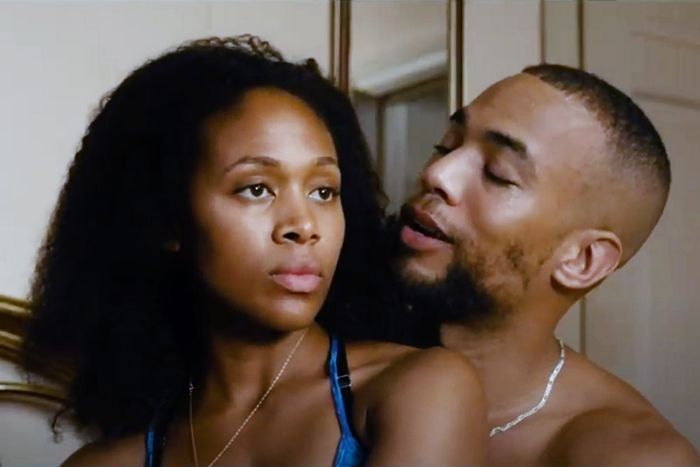
Writer-director Channing Godfrey Peoples honors the Fort Worth, Texas, community she was born and raised in with Miss Juneteenth. The film follows Turquoise (Nicole Beharie), a single mother and past Miss Juneteenth pageant winner, as she pushes through hard times and trying to establish her independence while dreaming big for her teen daughter (Alexis Chikaeze).
Pure (2021)
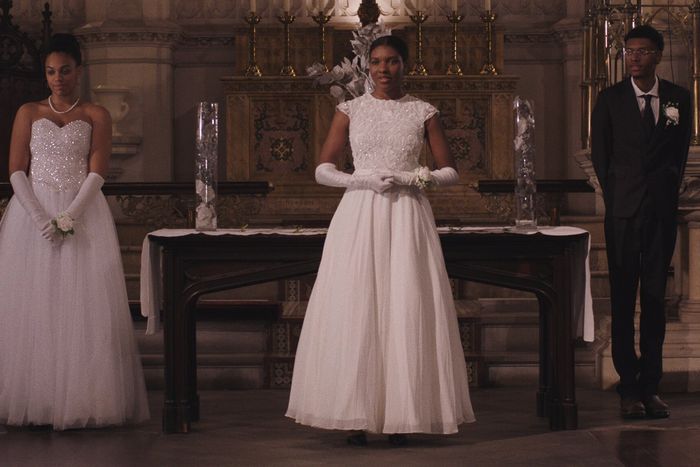
17-year-old Celeste (Mikayla Lashae Bartholomew) grapples with her queerness and the traditions of her affluent community on the eve of her cotillion. Writer-director Natalie Jasmine Harris, who brings the authenticity of a third-generation debutante, is currently adapting the short film into a feature-length script.
The 40-Year-Old Version (2020)
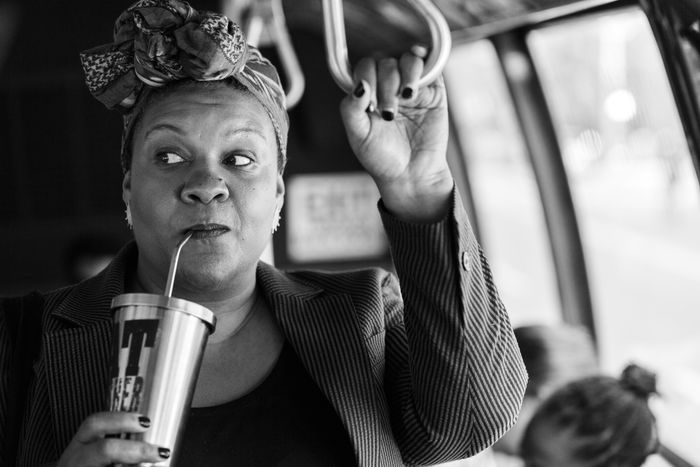
Finding your groove at any age can be tough. Add in being an artist who is sensitive about your shit in an industry full of white nonsense, grieving a parent, a younger Brooklyn boo, and casually being roasted by NYC teens from your drama class, and whew! Radha Blank’s black-and-white dramedy — which she also wrote, produced, directed, and starred in — is a delight. Bonus incentive to watch: We get to see Blank rap-ping!
A Luv Tale (1999)
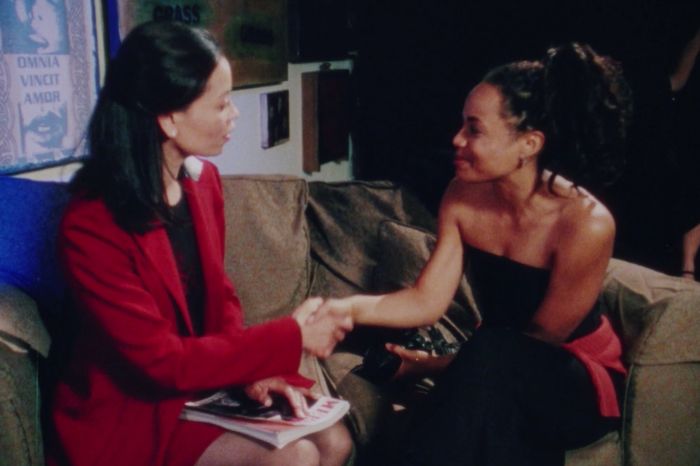
In 1999, Sidra Smith wrote, produced, and directed a film centered around a photographer (Gina Ravera) and a work-consumed magazine editor (Michele Lamar Richards) who find themselves increasingly drawn to each other. It’s a fun and sensual portrayal of romantic love between Black women, friendship, and taking a leap of faith in the name of love. Expect to see familiar faces like Tichina Arnold, MC Lyte, Ajai Sanders, and Angela Means.
Happy Birthday, Marsha! (2018)
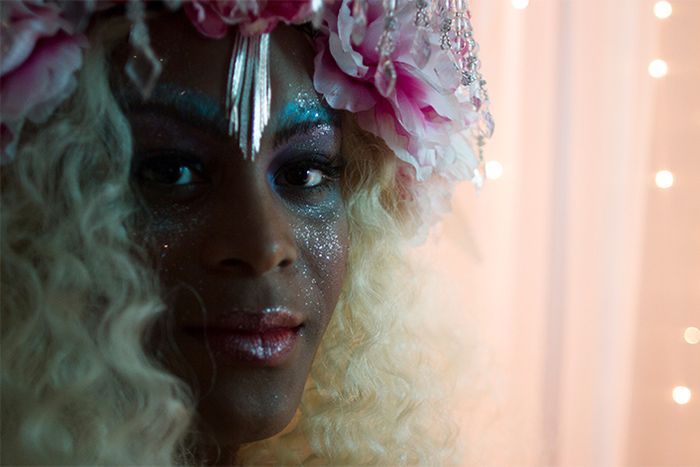
A shining aspect of artist Tourmaline’s creative output is her archival work of Marsha P. (“Pay it no mind”) Johnson and her experimental film portraiture of Black trans and queer elders. In this short, which was co-directed by Sasha Wortzel and stars Mya Taylor as Marsha, viewers get to go back in time hours before the pioneer sparked the 1969 Stonewall riots in New York City.
Just Another Girl on the I.R.T. (1992)
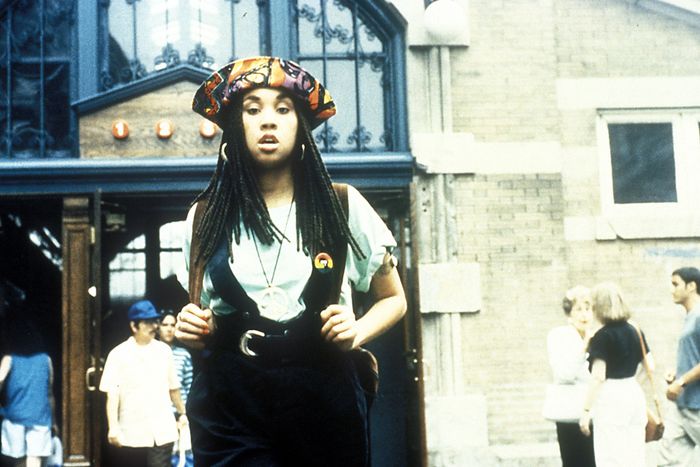
Filmmaker Leslie Harris’s tale of a high-school junior, Chantel (Ariyan A. Johnson), from Brooklyn with big dreams is a classic. The headstrong teen’s life plan is set: Graduate early, keep on the path to becoming a doctor, and leave the projects — but as life often reminds us, things rarely play out exactly how we envisioned it.
Click here to read the full article on The Cut.



